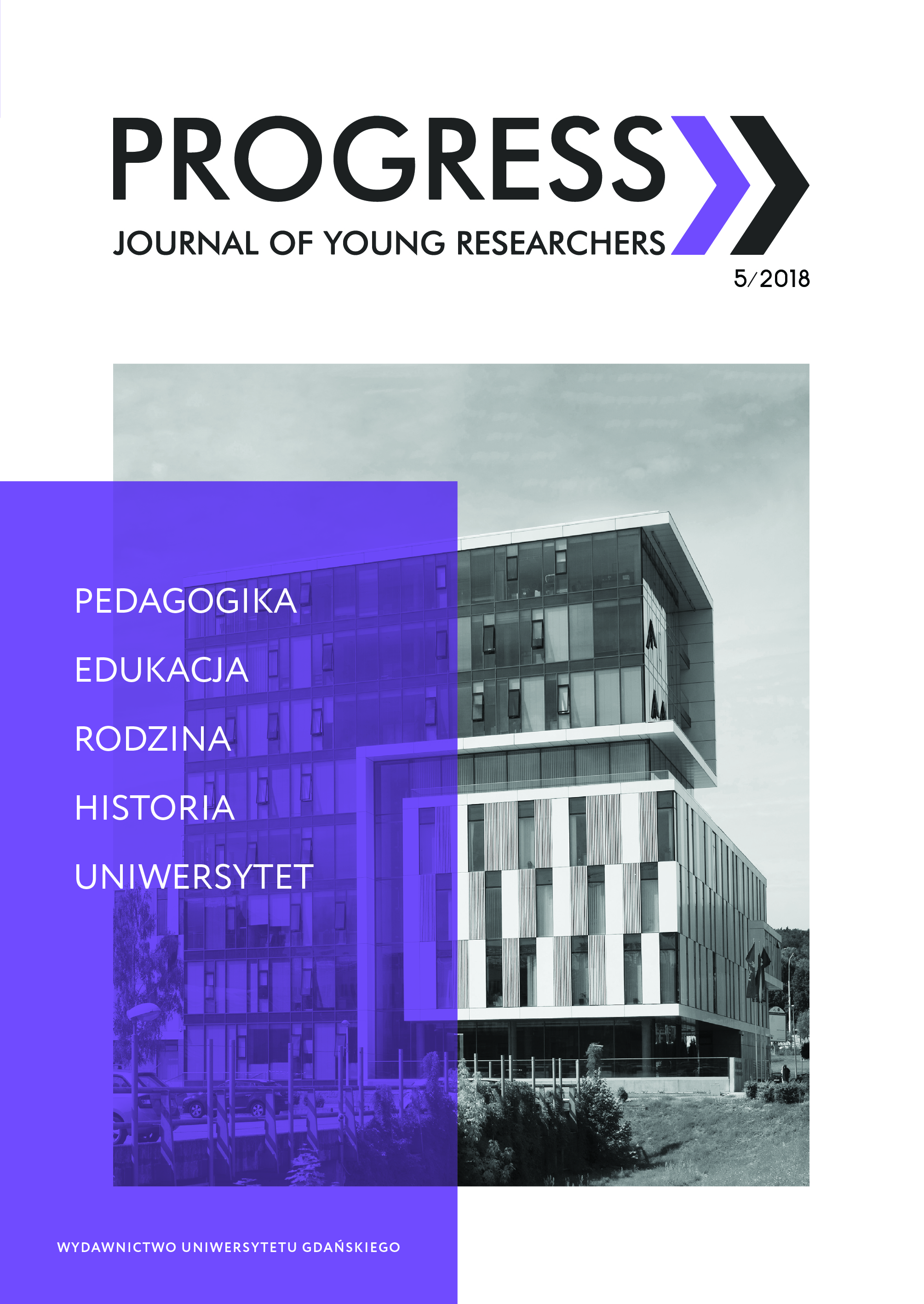Study of relations between workers and pupils of family children’s homes – ethnographic methodology, the perspective of application
DOI:
https://doi.org/10.26881/prog.2019.5.05Keywords:
ethnography method, quantitative and qualitative research, relationships, family foster homeAbstract
The purpose of this article is to analyze the ethnographic methodology research in terms of possibilities of its application in the study of relations between employees and pupils of family children’s homes. The author describes – what the ethnography is and indicates the weak and strong sides of it. I also present the conflict between quantitative and qualitative methods as a competing models of conducting social research called by his precursors “positivist” and “naturalistic”. Often seen as clash of contesting philosophical stands. First stand prefers quantitative methods, second recognizes ethnography as leading – if not only – method of conduct social researches. A purpose to confront those two methods is to improve the rationality of the choices, and to ensure reliability and validity of the research.
Downloads
References
Angrosino M., 2010, Badania etnograficzne i obserwacyjne, Warszawa.
Babbie E., 2003, Badania społeczne w praktyce, Warszawa.
Blumer H., 2007, Interakcjonizm symboliczny, Kraków.
Denzin N.K., 1978, The logic of naturalistic inquiry, „Social Forces”, Vol. 50 (2).
Hammersley M., 1987, Etnography for surrvival?, „British Educational Research Journal”, Vol. 13 (3).
Hammersley M, Atkinson P., 2000, Metody badań terenowych, Poznań.
Harvey L., 1987, Myths the Chicago School, Aldershot, Gower.
Kacperczyk A., 2006, Wsparcie społeczne w instytucjach opieki paliatywnej i hospicjach, Łódź.
Kawecki I., 1996, Etnografia i szkoła, Kraków.
Kleinknecht S., 2005, An interview with Robert Prus: His Career Contributions and Legacy as an Interactionist Ethnographer and Social Theorist, „Qualitative Socjology Review”, Vol. 3 (2).
Kołakowski L., 2004, Positivist Philosophy: From Hume to the Vienna Circle, Harmondsworth, Penguin. Wyd. pol.: Filozofia pozytywistyczna (od Hume’a do Koła Wiedeńskiego), Warszawa.
Konecki K., 2000, Studia z metodologii badań jakościowych. Teoria ugruntowana, Warszawa.
Koster M., 2003, Antropologia organizacji. Metodologia badań terenowych, Warszawa.
Koster M., 2007, Kultura organizacji. Badania etnograficzne polskich firm, Gdańsk.
Matza D., 1969, Becoming Deviant, Englewood Cliffs, New York.
Niedbalski J., 2013, Żyć i pracować w domu pomocy społecznej, Łódź.
Pilch T., 1998, Zasady badań pedagogicznych, Warszawa.
Raport Departamentu Polityki Rodzinnej MIPS, http://www.mpips.gov.pl/wsparcie-dla-rodzinz-dziecmi/opieka-zastepcza-nad-dzieckiem/dane-statystyczne.
Reichenbach H., 1983, Exerience and Prediction: An Analysis of the Foundations and the Structure of Knowledge, Chicago.
Rozporządzenie Rady Ministrów z dnia 12 marca 2004 r. o pomocy społecznej (Dz. U. Nr 64, poz. 593).
Rozporządzenie Ministra Pracy i Polityki Społecznej z dnia 14 lutego 2005 r. w sprawie placówek opiekuńczo-wychowawczych (Dz. U. Nr 37, poz. 331).
Schutz A., 1971, The stranger: an essay In social psychology [w:] A. Schütz (ed.), Collected Papers, t. 2, The Hague.
Silverman D., 2007, Interpretacja danych jakościowych, Warszawa.
Szkudlarek T., 1995, Dialektyka Innego i postkolonialna tożsamości [w:] M.M. Urlińska, Edukacja a tożsamość etniczna. Materiały konferencji naukowej w Rabce, Toruń.
Toulmin S., 1972, Human Understanding, Oxford.
Truzzi M., 1974, Verstehen: Subjective Understanding In the Social Sciences, Reading.
Downloads
Published
How to Cite
Issue
Section
License
Copyright (c) 2019 Author(s)

This work is licensed under a Creative Commons Attribution 4.0 International License.

 Academic Scientific Journals
Academic Scientific Journals




